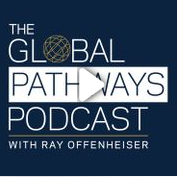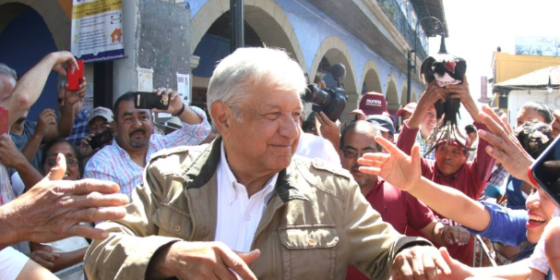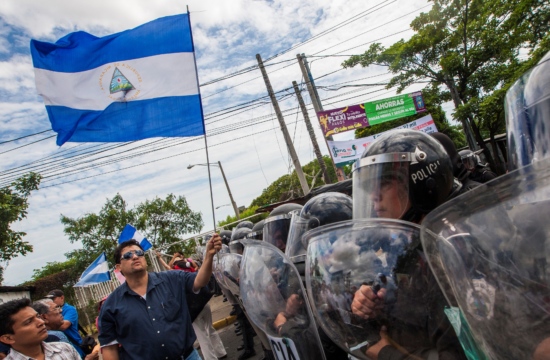
La rebelión cívica en la etapa final del régimen
Son pocas las instancias en las que las dictaduras, regímenes militares, y otras autocracias perduran más de 40 años en el poder. En este caso, el cambio político nicaragüense es inevitable.
Son pocas las instancias en las que las dictaduras, regímenes militares, y otras autocracias perduran más de 40 años en el poder. En este caso, el cambio político nicaragüense es inevitable.
On May 30, the Inter-American Dialogue, in conjunction with the Washington Office of Latin America and the Due Process of Law Foundation, hosted an event titled “Combating Corruption in Mexico: Challenges and Opportunities”. This discussion, moderated by Maureen Meyer and Katya Salazar, featured panelists Mariclaire Acosta from Mexico’s National Anticorruption System, Alejandro Rios from COPARMEX, and Daniel Lizárraga from Mexicanos Contra la Corrupción y la Impunidad.
The most unpredictable election in 40 years.
En este episodio de Club de Prensa, Juan Carlos Iragorri contó con la participación de Michael Shifter, presidente del Diálogo Interamericano; Raquel Godos, corresponsal de EFE; Alina Dieste, periodista de la agencia ‘France Presse’; Cynthia Arnson, directora para Latinoamérica – Wilson Center. Los participantes analizaron los resultados de la primera vuelta elector en Colombia y lo que se puede esperar para la segunda vuelta.
En este episodio de Foro Interamericano, Gonzalo Abarca entrevistó a Michael Camilleri, director del programa de estado de derecho Peter D. Bell del Diálogo Interamericano, y al Embajador Jaime Aparicio, ex-presidente del comite jurídico interamericano de la OEA y ex-secretario ejecutivo de la Cumbre de las Americas. Los participantes analizaron las dificultades de la OEA en responder a las crisis democráticas en America Latina.
On June 4, the Inter-American Dialogue hosted an event titled “Violence and the Democratic Transition in Nicaragua.” The IACHR documented systematic repression in its May 2018 visit to Nicaragua. The statistics, collected via hearings and testimonials, included 76 dead, more than 450 detained, and the recurrent usage of sharpshooters, torture, and extrajudicial killings.
On June 7, the Inter-American Dialogue hosted an event titled “Colombia’s Choice: Duque vs Petro”. The conversation analyzed the results of the first round of the election which propelled Iván Duque of the Centro Democrático party and Gustavo Petro of Colombia Humana into the second round of the presidential race. Participants also discussed what to expect on and after the second round of the presidential race.
Tariffs mean different things to different people. Four experts chime in.
After years in the doldrums, Jamaica’s economy is sparking to life.
On June 12, the Inter-American Dialogue was proud to host Carlos Alvarado, sitting president of Costa Rica, to discuss a variety of goals and challenges with Dialogue President, Michael Shifter. President Alvarado discussed his plans to restore faith in the government by tackling environmental issues, promoting inclusive education, and improving the transparency of the government.
A new report from the Education program analyzes trends in education policy and outcomes, as well as in development assistance and investment. It identifies spaces for US-LAC partnership for new and continued engagement.
A rocky road ahead for Latin America’s youngest president.
In a conversation with CSIS, Lisa Viscidi explains the potential implications of this year’s elections in Latin America’s top oil producing countries. Political changes in Brazil, Colombia, Mexico, and Venezuela will affect oil output, with effects felt both domestically and in the United States.
Host Ray Offenheiser and guest Michael Shifter, the president of Inter-American Dialogue, discuss the economic and political crises in Venezuela, as well as the upcoming elections and path forward for peace in Colombia.
It’s not all about oil in Mexico.
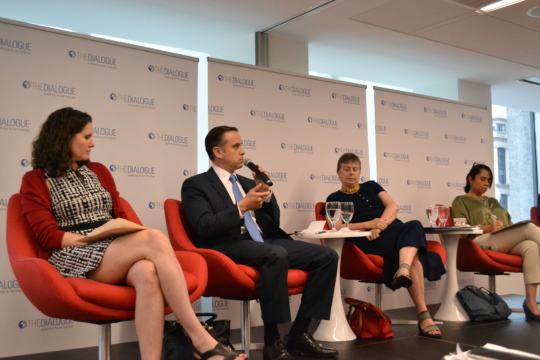 Video
Video
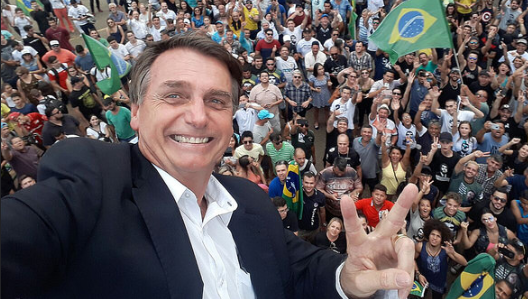
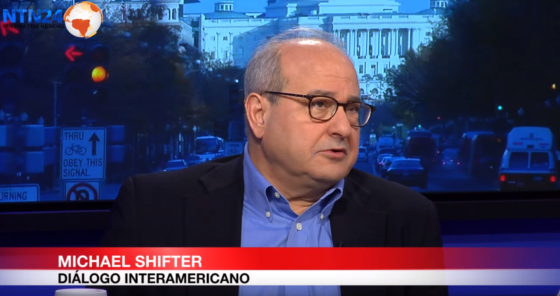 Video
Video
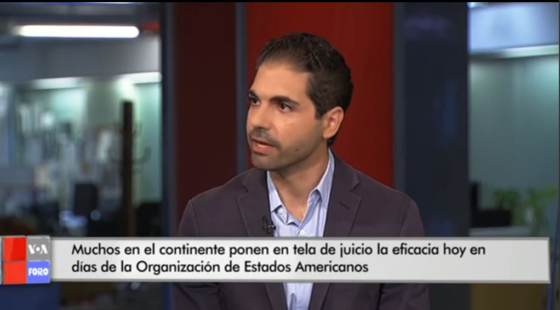 Video
Video
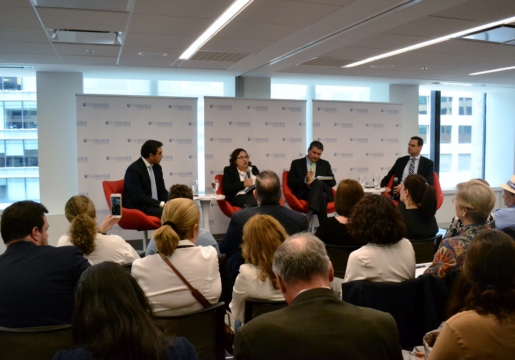 Video
Video
 Video
Video

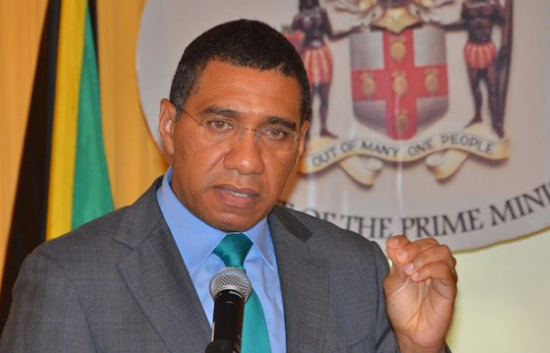
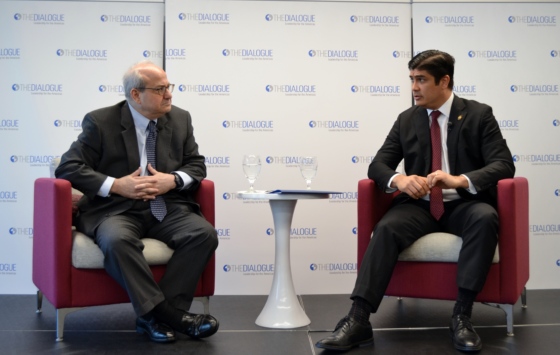 Video
Video
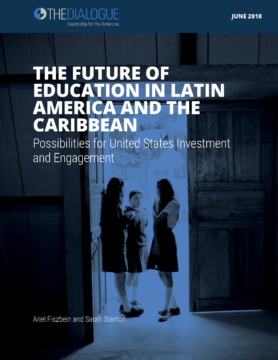
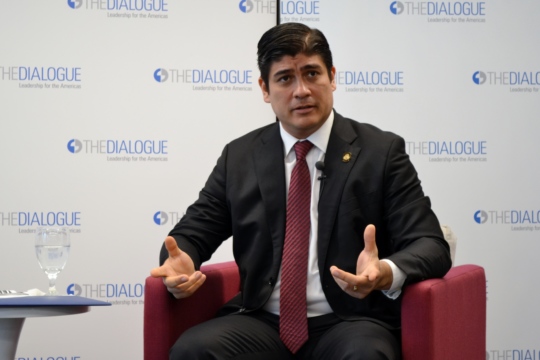
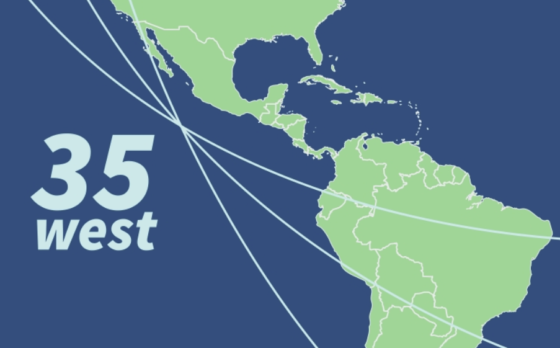 Video
Video
